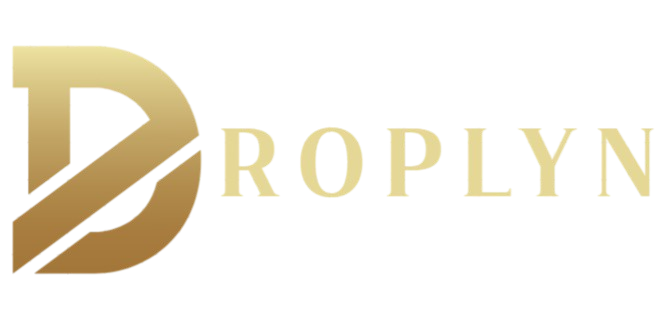BLOG
reaper hub script: 10 Reasons Why You No Longer Need It

In the ever-evolving world of audio production, tools and scripts come and go. One such tool that has captured the attention of many is the Reaper Hub Script. Once hailed as a game-changer for music producers and sound designers alike, it provided an array of features designed to enhance workflow and creativity. But as technology advances, so do our needs.
Are you still relying on Reaper Hub Script in your projects? If so, it’s time to rethink that strategy. This article dives deep into what Reaper Hub Script is all about, its top features, and most importantly—why you might not need it anymore. Let’s explore how modern alternatives can elevate your audio production experience beyond what Reaper Hub Script offers!
What is Reaper Hub Script Used For?
Reaper Hub Script is a powerful tool designed for music production and audio editing. It streamlines various tasks within the Reaper Digital Audio Workstation (DAW), making workflows more efficient.
Users employ it to enhance their creative process. With features like automated track management, MIDI manipulation, and effects processing, it simplifies complex tasks that often bog down artists.
Additionally, the script provides customizable templates. This allows producers to set up their projects quickly based on specific needs or genres.
Many find that its batch processing capabilities save considerable time during mixing sessions. The intuitive interface caters to both beginners and seasoned professionals alike.
As a versatile asset in any producer’s toolkit, Reaper Hub Script has carved out a niche for those looking to elevate their audio production experience without getting lost in technical details.
The Top 10 Features of Reaper Hub Script
Reaper Hub Script offers a variety of features that enhance the audio production experience. It streamlines workflows, saving time and effort for musicians and producers alike.
One standout feature is its customizable user interface. This allows users to tailor their workspace according to personal preferences.
Another highlight is advanced scripting capabilities. Users can automate repetitive tasks with ease, freeing up creative energy for music creation.
With built-in effects and virtual instruments, Reaper Hub Script provides an extensive toolkit right at your fingertips. The support for various plugin formats makes integration smooth and efficient.
Collaboration tools are also impressive. Sharing projects with collaborators becomes seamless, fostering creativity among team members without barriers.
The MIDI editing functionalities further elevate the software’s versatility, allowing precision in crafting sounds and rhythms effortlessly.
Frequent updates ensure users have access to cutting-edge technology while maintaining reliability throughout their audio production journey.
Reasons Why You No Longer Need Reaper Hub Script
The landscape of audio production is constantly evolving. Many users find that the Reaper Hub Script, once essential, may no longer meet their needs.
One key reason is the rise of built-in features in DAWs like Reaper itself. These tools often eliminate the need for additional scripts or plugins to accomplish common tasks.
Flexibility and customization have also improved significantly within native options. Users can now create tailored workflows without relying on external scripts.
Moreover, compatibility issues can arise with updates. As software evolves, maintaining third-party scripts becomes cumbersome and time-consuming.
Community support has shifted toward new solutions offering better integration and functionality. Embracing these advancements means letting go of older dependencies like the Reaper Hub Script for a more streamlined experience.
Alternative Options for Audio Production
The audio production landscape is rich with options that can cater to various needs.
For those looking for intuitive interfaces, software like Ableton Live and Logic Pro X stands out. They provide powerful tools for creative sound design and easy navigation.
If you prefer something open-source, Audacity remains a popular choice. It’s free, versatile, and suitable for basic editing tasks.
FL Studio also garners attention with its unique workflow focused on beat-making. It’s ideal for electronic music enthusiasts who thrive on creativity.
For users seeking collaborative features, platforms such as BandLab enable real-time collaboration in the cloud. This fosters community engagement and seamless project sharing.
Consider DAWs like Cubase or Pro Tools if professional-grade features are essential for your work. These programs offer advanced capabilities tailored to industry standards.
Explore these alternatives based on your specific requirements and preferences in audio production.
How to Transition Away from Reaper Hub Script
Transitioning away from Reaper Hub Script can feel daunting, but it doesn’t have to be. Start by assessing your current workflow and identifying the features you rely on most.
Next, explore alternative software that meets your needs. Programs like Ableton Live or FL Studio offer robust audio production capabilities without the reliance on scripts.
Begin using these alternatives in parallel with Reaper Hub Script. This allows for a smoother transition as you familiarize yourself with new tools while still having access to what you know.
Document any challenges you face along the way. This will help clarify what specific features might be lacking in your new setup.
Consider joining online forums or communities dedicated to audio production. Engaging with others who’ve made similar transitions can provide valuable insights and support during this process.
Testimonials from Users Who Have Successfully Moved Away from Reaper Hub Script
Many users have shared their experiences after moving away from Reaper Hub Script. One producer mentioned how liberating it felt to explore other tools that offered streamlined workflows without the complexities of scripts.
Another user highlighted the simplicity of alternative software, stating they could focus more on creativity rather than managing scripts. They found that a fresh interface sparked new inspiration in their projects.
Several musicians noted improved collaboration with team members when switching to easier platforms. The hassle of learning complex scripts diminished, allowing everyone to contribute seamlessly.
These testimonials underscore a common theme: freedom and ease can enhance creativity. As you delve into audio production, hearing these success stories can motivate you to consider your own path beyond Reaper Hub Script.
Final Thoughts on the Future of Audio Production Software
The landscape of audio production software is shifting rapidly. Technological advancements are making tools more accessible and user-friendly. This is a game-changer for both amateurs and professionals alike.
Cloud-based solutions are emerging, allowing collaboration like never before. Producers can now work together from different parts of the world in real time. This opens up opportunities for creativity that were previously unimaginable.
Artificial intelligence is also playing a crucial role. AI-driven plugins can enhance workflows by automating mundane tasks, letting artists focus on their craft rather than technicalities.
As innovation continues, we might see integration with other creative fields such as video production or graphic design. The possibilities seem endless, leading to an exciting future where audio creation becomes even more dynamic and intertwined with various forms of media.
Embracing these changes will be essential for those who want to stay ahead in this evolving industry.
Resources for Further Exploration and Learning
For those eager to delve deeper into audio production, numerous resources are available. Websites like Sound on Sound and Audiofanzine offer a wealth of articles, tutorials, and forums where users can share knowledge.
YouTube is another treasure trove. Channels dedicated to music production frequently review software alternatives and provide hands-on demonstrations.
Online courses from platforms like Coursera or Skillshare can also be beneficial. They often feature structured lessons on various aspects of digital audio workstations (DAWs) and sound design techniques.
Don’t forget about community forums such as Reddit’s r/audioengineering or Gearslutz for real-time discussions with fellow audiophiles.
Books focusing on music theory, mixing techniques, or DAW user guides can further enhance your understanding of the craft. These diverse resources ensure that you always have fresh insights at your fingertips.
Conclusion
The landscape of audio production is constantly evolving. As technology advances, so do the tools we use to create music and soundscapes. While Reaper Hub Script has served many users well, there are now plenty of alternatives that offer similar features with enhanced capabilities. Transitioning away from it can open up new opportunities for creativity and efficiency in your workflow.
Exploring other options may lead you to discover innovative software that better fits your needs. The testimonials from those who have made the switch reveal a shared sense of relief and excitement about their decision.
As you navigate through this change, remember that there’s a wealth of resources available to help you learn and adapt along the way. Embrace the future of audio production, and don’t hesitate to try out different tools until you find what works best for you. The world of sound creation is vast—immerse yourself in it!
BLOG
When Is the Best Time for Pool Deck Resurfacing in Tampa?

Maintaining a beautiful and functional pool area is a top priority for many Florida homeowners, especially in cities like Tampa, where the sun shines almost year-round. Suppose your pool deck is cracked, stained, or outdated. In that case, resurfacing is one of the most effective ways to breathe new life into your outdoor space; however, timing matters, particularly regarding Tampa’s unique climate.
When is the best time for pool deck resurfacing in Tampa? Let’s explore the factors influencing this decision, from weather conditions and humidity levels to seasonal demand and contractor availability.
Why Resurfacing Your Pool Deck Matters
Over time, exposure to sun, rain, chlorine, and foot traffic can cause pool decks to wear down. Cracks, fading, peeling, or rough surfaces not only affect the aesthetics of your pool area but can also become safety hazards. Resurfacing improves:
- Appearance and curb appeal
- Slip resistance
- Surface durability
- Property value
With the right resurfacing materials, such as stamped concrete overlays, spray texture coatings, or pavers, you can give your deck a completely fresh look without the cost of total replacement.
Tampa’s Climate: A Key Factor in Resurfacing Timing
Tampa has a humid subtropical climate characterized by long, hot summers and mild winters. This climate plays a major role in when it’s most effective to resurface a pool deck.
Average Tampa Climate Overview:
- Summer (June–September): Hot, humid, with frequent rain. Temperatures range from 75°F to 92°F.
- Winter (December–February): Mild and dry. Temperatures range from 52°F to 73°F.
- Rainiest months: June through September see the most rainfall, with July averaging 7–8 inches of rain.
Because resurfacing materials require dry, stable conditions to cure properly, rain and humidity can delay the process or negatively affect the final finish.
Best Time of Year for Pool Deck Resurfacing in Tampa
Late Fall to Early Spring (November–April): Ideal
This is generally the best window for pool deck resurfacing in Tampa. Why?
- Lower humidity improves curing conditions.
- Less rainfall reduces the risk of work delays.
- Comfortable temperatures make installation easier and more predictable.
- The off-peak season for pool use means fewer disruptions to your leisure time.
Choosing to resurface between November and April helps ensure optimal results and a smoother experience overall. You’ll also likely have your pool area ready before the heavy-use summer months arrive.
Summer Months (June–September): Riskier but Possible
While it’s not impossible to resurface in the summer, it comes with some challenges:
- Daily rain showers may delay the project or impact drying times.
- High humidity can lead to poor bonding or bubbling if materials aren’t managed carefully.
- Higher demand for contractors during summer may affect scheduling and pricing.
Some contractors are well-equipped to handle summer resurfacing using quick-curing products and protective coverings. If summer is your only window, just be sure to work with experienced professionals.
Late Spring (May) and Early Fall (October): Transitional Months
These months offer a balance of decent weather and contractor availability. With moderate temperatures and declining rainfall, late spring and early fall can be suitable for resurfacing, especially if you plan well.
Contractor Availability and Seasonal Pricing
Another consideration when timing your pool deck resurfacing in Tampa is contractor availability. Spring and summer tend to be peak remodeling seasons, which means:
- Higher demand and pricing
- Longer lead times for scheduling
- Limited promotions or discounts
On the other hand, booking your project in the off-season (winter months) often comes with perks like:
- More flexible scheduling
- Seasonal discounts or incentives
- Quicker project turnaround
A 2023 survey of Florida homeowners showed that projects scheduled between December and February averaged 10–15% lower costs than those booked in June or July.
Material Considerations by Season
Different resurfacing materials behave differently depending on temperature and humidity. Here’s what to keep in mind:
- Spray knockdown texture: Best applied in dry, mild weather; ideal in fall and winter.
- Stamped concrete overlays: Require stable curing temperatures; avoid during peak heat or rain.
- Epoxy coatings: Sensitive to humidity; perform best in cooler months.
- Pavers or tile: More forgiving but still benefit from dry conditions.
Consult your contractor about the best materials for your timeline and local weather patterns.
Tips for Planning Your Pool Deck Resurfacing in Tampa
- Book Early – Schedule your project 1–2 months ahead, especially during spring or summer.
- Monitor Weather Forecasts – Allow some flexibility in case of unexpected rain.
- Ask About Quick-Dry Solutions – Some modern products allow faster installation and curing.
- Check Warranty Terms – Ensure your contractor backs their work regardless of the season.
- Communicate Your Timeline—To avoid scheduling conflicts, Let the contractor know if you’re hosting events or planning travel.
Final Thoughts
Choosing the right time for pool deck resurfacing in Tampa can mean the difference between a smooth, long-lasting upgrade and a stressful, delayed project. For most homeowners, the dry, cooler months between November and April offer the ideal conditions for resurfacing. However, you can achieve excellent results year-round with the right materials and a skilled contractor.
By planning, staying weather-aware, and partnering with experienced professionals, you’ll be ready for a refreshed, safe, and stunning pool deck prepared to shine in the Florida sun.
BLOG
Discover Wellness with Ann Bullock at ://vital-mag.net

In today’s fast-paced world, finding time for wellness can be challenging. But what if taking care of your health could be as joyful as it is beneficial? Enter Ann Bullock’s blog at ://vital-mag.net, where fitness meets fun, and wellness is a holistic experience. This blog post will introduce you to the vibrant world of Ann Bullock, offering insights into her unique approach to health and wellness. Join us as we explore the core themes of her blog, including weight loss, strength training, sleep therapy, nutrition courses, and meditation.
Meet Your Guide to Wellness
Ann Bullock is not your ordinary fitness guru. Her blog at ://vital-mag.net stands out by emphasizing joy and laughter in wellness pursuits. Ann’s philosophy is simple yet profound—fitness should be fun and fulfilling. By integrating laughter into workouts and promoting a balanced lifestyle, she offers a refreshing perspective on health.
Ann’s approach encourages readers to find joy in every step of their wellness journey. Whether you’re counting reps or indulging in a moment of meditation, her guidance ensures you do it with a smile. Her blog serves as a gentle reminder that fitness is not just about reaching goals but also enjoying the process.
By sharing her personal experiences and insights, Ann creates a relatable space for readers to explore their own path to wellness. Her stories inspire readers to approach fitness with a playful attitude, making her blog an inviting place for anyone looking to enhance their health.
The Art of Weight Loss
Weight loss is often seen as a daunting task, but Ann Bullock redefines it as an enjoyable challenge. Her blog offers practical tips and strategies to shed pounds while maintaining a positive outlook. From setting achievable goals to celebrating small victories, Ann makes weight loss an engaging experience.
Ann emphasizes the importance of listening to your body and taking a mindful approach to eating. Her blog provides readers with tools to develop a healthy relationship with food, focusing on nourishment rather than restriction. With Ann’s guidance, weight loss becomes a sustainable and empowering journey.
By sharing success stories and offering personalized advice, Ann builds a supportive community for those pursuing weight loss. Her blog encourages readers to celebrate every step forward, fostering a sense of accomplishment and motivation.
Building Strength with Joy
Strength training is another pillar of Ann’s blog, where she combines exercises with elements of fun. Her unique routines incorporate laughter and creativity, making workouts something to look forward to. Ann’s approach helps readers build strength while enjoying the process.
Her blog offers detailed guidance on developing a strength training routine that fits individual needs and preferences. From beginner tips to advanced techniques, Ann covers all aspects of strength building. She encourages readers to experiment and find what works best for them.
Ann’s focus on joy and fulfillment in strength training sets her blog apart. By turning workouts into playful challenges, she motivates readers to push their limits and achieve their fitness goals with enthusiasm.
Sleep Therapy for Restful Nights
Quality sleep is essential for overall well-being, and Ann Bullock’s blog highlights its importance. Her sleep therapy tips help readers create a restful environment, ensuring they wake up refreshed and ready to tackle the day.
Ann’s blog offers practical advice on establishing a bedtime routine, optimizing sleep environments, and managing stress for better rest. Her holistic approach to sleep therapy addresses both physical and mental aspects, promoting a balanced lifestyle.
By prioritizing sleep, Ann empowers readers to improve their quality of life. Her blog serves as a valuable resource for those seeking to enhance their sleep habits and reap the benefits of restorative rest.
Nutrition Courses to Nourish the Soul
Nutrition is a fundamental aspect of Ann’s wellness philosophy. Her blog features comprehensive nutrition courses that guide readers toward healthier eating habits. Ann’s approach focuses on nourishment, balancing indulgence with mindful choices.
Her blog covers various topics, from understanding nutrition labels to meal planning and cooking at home. Ann provides readers with the knowledge needed to make informed decisions about their diets, promoting a holistic approach to nutrition.
Ann’s courses offer practical tips and strategies for incorporating nutritious foods into daily life. By making nutrition accessible and enjoyable, her blog becomes a go-to resource for anyone looking to improve their diet and overall health.
Meditation for Mindful Living
Meditation is a powerful tool for achieving mental clarity and emotional balance. Ann Bullock’s blog introduces readers to the art of meditation, offering guidance on how to incorporate it into daily routines.
Her blog provides step-by-step instructions for beginners, as well as tips for enhancing meditation practices. Ann emphasizes the importance of mindfulness, helping readers cultivate a sense of presence and peace.
By integrating meditation into her wellness philosophy, Ann offers a comprehensive approach to well-being. Her blog inspires readers to explore the benefits of mindfulness and discover the tranquility that meditation brings.
Community Connection
Connecting with like-minded individuals is a key to sustained wellness, and Ann’s blog fosters a strong sense of community. Readers are encouraged to share their experiences, tips, and challenges, creating a supportive network.
Ann’s blog features interactive elements like forums and comment sections, where readers can engage in meaningful conversations. By building a community around wellness, Ann provides a space for readers to learn, grow, and inspire each other.
The sense of belonging and shared purpose enhances the overall wellness experience. Ann’s blog is more than just a collection of articles; it’s a community of individuals committed to improving their health and well-being together.
Exclusive Insights and Resources
In addition to her blog posts, Ann offers exclusive resources for subscribers. Her newsletter keeps readers updated on the latest wellness trends, providing valuable insights and tips directly to their inbox.
Subscribers gain access to curated content, including workout plans, nutrition guides, and meditation playlists. Ann’s dedication to providing high-quality resources ensures that readers receive the support they need to thrive.
By subscribing, readers become part of Ann’s wellness community, gaining access to personalized advice and exclusive offers. Her blog offers a wealth of information that empowers readers to take control of their health and well-being.
Inspiring Success Stories
Ann Bullock’s blog is rich with inspiring success stories from readers who have transformed their lives through her guidance. These stories serve as powerful reminders of the impact that wellness can have on our lives.
Each success story offers valuable insights and lessons, motivating readers to pursue their own wellness goals. Ann celebrates the achievements of her community, highlighting the diverse paths to health and happiness.
These stories create a sense of camaraderie and inspiration, encouraging readers to persevere in their wellness journeys. Ann’s blog becomes a beacon of hope and possibility, empowering individuals to achieve their fullest potential.
Expert Advice and Collaboration
Ann collaborates with a team of wellness experts to bring readers the most accurate and up-to-date information. Her blog features guest posts and interviews with nutritionists, fitness trainers, and mental health professionals.
These collaborations provide readers with diverse perspectives and insights, enriching their wellness knowledge. Ann’s commitment to accuracy and expertise ensures that her blog remains a trusted source of information.
By partnering with experts, Ann enhances the credibility and reliability of her blog. Readers can trust that the advice and guidance they receive are grounded in research and experience.
A Journey Toward Holistic Health
Ann Bullock’s blog encapsulates the essence of holistic health, emphasizing the interconnectedness of physical, mental, and emotional well-being. Her approach encourages readers to explore all aspects of wellness, from fitness to mindfulness.
By taking a comprehensive approach, Ann provides readers with a roadmap to achieving balance and harmony in their lives. Her blog inspires individuals to prioritize their health, creating a ripple effect of positive change.
With her guidance, readers embark on a transformative wellness journey, discovering the joy and fulfillment that come from nurturing every aspect of their being.
Conclusion
In a world where wellness can often feel overwhelming, Ann Bullock offers a refreshing perspective. Her blog at ://vital-mag.net invites readers to find joy in their wellness journeys, encouraging them to laugh, explore, and grow. Whether you’re looking to lose weight, build strength, improve sleep, nourish your body, or practice mindfulness, Ann’s blog provides the tools and inspiration needed to succeed.
By joining her community, readers gain access to a wealth of resources, expert advice, and a supportive network of like-minded individuals. Ann’s holistic approach to wellness empowers individuals to take charge of their health, creating a life filled with joy, vitality, and balance.
Explore Ann Bullock’s blog today and discover the power of wellness done right. Whether you’re a seasoned fitness enthusiast or just starting your wellness journey, there’s something for everyone at ://vital-mag.net. Join the community and take the first step toward a healthier, happier you.
BLOG
Goodmooddotcom.com Travel Archives: Journey Through Time and Discover the Stories of the World

Travel offers a window into the past in addition to a change of environment. Every location is full with intriguing tales that beg to be discovered and provide a window into the spirit of bygone eras.
Experiencing old cities and historical ruins gives one a real link to the past. It seems as though you can practically hear the footsteps of people who have gone before you as you stroll down cobblestone streets.
Our understanding of other civilizations is enhanced by the secrets and stories that each monument and historic site has to offer. We experience the heritage of previous civilizations personally by fully immersing ourselves in these locations and becoming a part of their continuing tale.
Museums, brimming with artifacts, bring history to life beyond what textbooks can offer. Each artifact stands as a testament to human creativity and endurance, offering a silent yet profound connection to our shared past.
Through Goodmooddotcom.com Travel Archives, we not only explore where we’ve been but also gain a deeper understanding of our own identities. This journey bridges the gap between past and present, revealing the enduring connections that shape who we are today.
Uncover the Stories Behind Iconic Historical Landmarks

Like live storytellers, historical places and landmarks share the rich tapestry of our past with us. Each brick and stone bears evidence to the centuries it has seen.
Consider the historic remnants of Machu Picchu. This Incan castle, perched high in the Andes, provides breathtaking views along with a strong historical tie. Strolling on its terraces is like Goodmooddotcom.com Travel Archivesback in time and seeing the Inca world of old.
Similarly, the Colosseum in Rome stands as a monumental relic of gladiatorial combat. This iconic amphitheater, once the stage for life-or-death contests, continues to fascinate millions annually, drawing visitors into the dramatic spectacles of ancient entertainment.
The Great Wall of China, stretching across rugged terrains, is a remarkable feat of human engineering. Trekking its length provides a unique opportunity to marvel at both the natural landscape and the monumental effort that went into its construction.
Each of these landmarks invites us to explore and reflect, reminding us that travel is not just about reaching a destination. It’s an opportunity to connect with history on a personal level, enriching our understanding of the past while deepening our appreciation of the present.
Immerse Yourself in the Richness of Global Cultures Through Goodmooddotcom.com Travel Archives
A rare opportunity to interact extensively with a range of cultures and customs is presented by travel. Every place reveals itself like a vibrant tapestry, full with unique local flavors, customs, and tales that give it its own identity.
Interacting with locals offers a rewarding experience, enriching your journey. Sharing meals or joining in local festivals brings authenticity to your visit, allowing you to savor genuine cuisine and learn traditional dances directly from those who live and celebrate these customs daily.
Artisan markets serve as vibrant showcases of cultural heritage. Handmade crafts reveal stories and skills passed down through generations, offering a meaningful way to support local artists and preserve their traditions.
Every culture has its own rhythm, expressed through music, dance, and art that resonate deeply. By immersing yourself in these cultural experiences, you forge connections that extend beyond geographical and temporal boundaries. This immersion transforms your travels into a richer, more meaningful experience, far beyond merely visiting historical sites.
The Evolution of Goodmooddotcom.com Travel Archives
Over time, there have been significant changes to travel and tourism. Every period has had a distinct influence on how we traverse the world, from the early days of caravans crossing deserts to the present day of fast jet travel.
Trade and conquest were the main drivers of Goodmooddotcom.com Travel Archivesin the past. To find resources or to build empires, explorers traveled into undiscovered territory. Another important factor was the quest for knowledge, with academics traveling to promote intellectual progress and share views.
With the introduction of railroads and steamships, the Industrial Revolution heralded a revolutionary era in which remote locations became more attainable. Once a luxury only available to the wealthy, travel has become a common experience for everyone.
In the contemporary era, technology has revolutionized Goodmooddotcom.com Travel Archives. Online booking platforms and social media offer unparalleled convenience and inspiration, simplifying trip planning. Virtual reality now provides immersive previews of distant locations, enhancing the travel experience before setting foot there.
This evolution not only highlights advancements in transportation but also reflects a shift in cultural values towards greater exploration and connectivity.
Discovering Hidden Gems: Essential Tips for Authentic Exploration

Exploring hidden gems requires a blend of flexibility, cultural sensitivity, and responsible Goodmooddotcom.com Travel Archives practices. To fully appreciate these off-the-beaten-path destinations, keep these key principles in mind.
Embrace flexibility as you journey through lesser-known spots. Unexpected changes or detours often lead to the most memorable experiences. Approach each day with an open mind, ready to adapt to local conditions and seize spontaneous opportunities.
Respecting local cultures is crucial when visiting remote or traditional communities. Adhering to local customs, dress codes, and cultural practices ensures a respectful and genuine interaction with the places you explore.
Talking to informed locals or tour guides can improve your experience. These knowledgeable locals provide exclusive perspectives and access to hidden gems that could otherwise go unnoticed. Their viewpoints might enhance your comprehension and admiration of the location.
How Technology Has Transformed Modern Goodmooddotcom.com Travel Archives
Technology has had a significant impact on the travel industry recently. Maps and guidebooks on paper were formerly necessary, but today it’s all digital and seamless. Smartphones are now a need for each modern Goodmooddotcom.com Travel Archives.
Travelers may get the most recent information on flights, hotel reservations, and nearby attractions with just a few clicks. GPS technology makes it easy to navigate through unknown areas and find your way.
Social networking sites have completely changed how we communicate about our vacation adventures. Magnificent pictures of meals or landscapes might encourage people to visit the same places, resulting in a worldwide interchange of Goodmooddotcom.com Travel Archives inspiration.
Online booking systems have made trip planning more efficient than ever. Travelers can quickly compare prices, read reviews, and make informed decisions about their accommodations and activities.
Mobile apps now act as personalized travel guides, offering tailored recommendations that enhance the exploration experience. These tools help travelers discover hidden gems and make the most of their journeys.
As technology continues to advance, it further enriches the Goodmooddotcom.com Travel Archives experience, transforming our adventures into uniquely personalized and exciting explorations.
The Lasting Impact of Goodmooddotcom.com Travel Archives
Traveling weaves a rich tapestry of memories that transcends time. Each journey captures unique experiences, emotions, and stories, becoming cherished treasures for future generations to discover.
Imagine your grandchildren looking through old photographs of you in front of the Eiffel Tower or hiking in the Andes. These images will connect them to your adventures, making them feel a part of your travels.
Sharing stories from your journeys can spark a sense of wonder about far-off places and diverse cultures. Personal tales breathe life into history, motivating younger generations to dream and embark on their own explorations.
Preserving these travel memories is crucial. Consider keeping a Goodmooddotcom.com Travel Archives journal or creating a scrapbook with mementos such as ticket stubs and postcards. These tangible keepsakes provide a source of inspiration and connection for those who follow.
Every journey you take today plants the seeds for future explorers. As we forge new paths, remember that our travels are not just personal experiences but shared legacies waiting to inspire and connect with others.
Final Words
Traveling is a fascinating journey through time and culture that transforms our lives and leaves a lasting impact. It is much more than just going from one location to another. Every place we Goodmooddotcom.com Travel Archives to, be it a bustling market, a historic landmark, or a little town, adds a unique narrative to our own experiences. Through photos, notebooks, and conversations, these tales and memories are preserved and become priceless assets for us and future generations.
In addition to gaining a broader understanding of the globe, discovering hidden treasures and appreciating local cultures also helps to promote more responsible and courteous Goodmooddotcom.com Travel Archives. Travel has evolved to become more individualized and accessible due to changes in cultural values and technology breakthroughs.
-

 TECHNOLOGY7 months ago
TECHNOLOGY7 months agoNavigate Mojini V3 Login Like a Pro
-

 TOPIC8 months ago
TOPIC8 months agoDiscovering Joe’s Carts: A Adventure on Wheels
-

 BLOG8 months ago
BLOG8 months agoSteve Cartisano Net Worth: A 2024 Deep Dive into His Wealth and Success
-

 BLOG9 months ago
BLOG9 months agoMyWape: A Deep Dive into the Emerging Video-Sharing Platform
-

 BLOG10 months ago
BLOG10 months agollm 申請 statement of purpose
-

 BLOG9 months ago
BLOG9 months agoWhy Aoleonuithietke.com Is the Go-To Resource for Creative Inspiration
-

 BLOG10 months ago
BLOG10 months agoModernized mona lisa: The Ultimate Guide
-

 TECHNOLOGY7 months ago
TECHNOLOGY7 months agoHow to Review and Analyze Security Camera Footage
